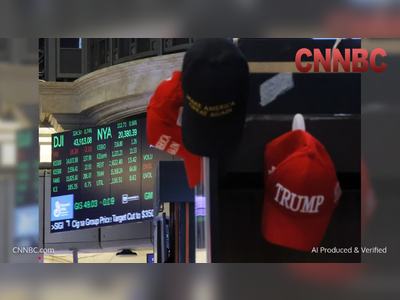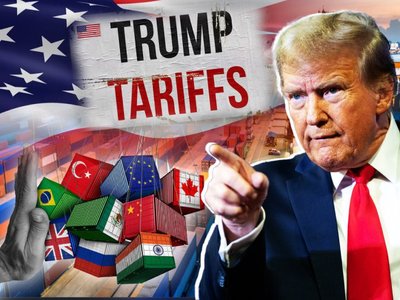China Raises Tariffs on U.S. Goods to 125% Amid Escalating Trade Dispute
Beijing responds to Washington's 145% tariffs with increased duties and signals a halt to further tit-for-tat measures
On April 11, 2025, China announced an increase in tariffs on U.S. imports to 125%, effective April 12.
This move follows the United States' decision to raise tariffs on Chinese goods to 145%, intensifying the ongoing trade conflict between the world's two largest economies.
China's Ministry of Finance stated that the U.S. imposition of elevated tariffs violates international trade rules and constitutes unilateral coercion.
The ministry indicated that, while China would not match any further U.S. tariff increases, it reserves the right to implement other forms of countermeasures if necessary.
The escalating tariffs have significantly impacted global markets.
U.S. stock indices experienced volatility, with the Dow Jones Industrial Average dropping 254 points (0.6%) on April 11, following a 1,014.79-point decline the previous day.
The S&P 500 and Nasdaq also saw declines of 0.5% and 0.2%, respectively.
Investor concerns have been heightened by rising inflation expectations, with a University of Michigan survey indicating a projected 6.7% increase in prices over the coming year, the highest level in over four decades.
In response to the trade tensions, China has taken additional measures, including restricting imports of Hollywood films and issuing travel advisories for Chinese citizens considering visits to the U.S. or studies in certain states.
Beijing has also filed a complaint with the World Trade Organization, accusing the U.S. of engaging in coercive trade practices.
Chinese President Xi Jinping has engaged in diplomatic efforts to strengthen ties with other trading partners.
During a meeting with Spanish Prime Minister Pedro Sánchez, Xi emphasized the importance of China and the European Union jointly opposing unilateral trade actions.
Xi is scheduled to embark on a tour of Southeast Asia, aiming to consolidate relationships with neighboring countries amid the escalating trade tensions with the United States.
The trade dispute has also affected global supply chains and economic forecasts.
Analysts have noted that the high tariff levels could render U.S. goods uncompetitive in the Chinese market and vice versa, potentially leading to a significant reduction in bilateral trade volumes.
Economic projections have been adjusted accordingly, with some forecasting a slowdown in global economic growth due to the ongoing trade uncertainties.
This move follows the United States' decision to raise tariffs on Chinese goods to 145%, intensifying the ongoing trade conflict between the world's two largest economies.
China's Ministry of Finance stated that the U.S. imposition of elevated tariffs violates international trade rules and constitutes unilateral coercion.
The ministry indicated that, while China would not match any further U.S. tariff increases, it reserves the right to implement other forms of countermeasures if necessary.
The escalating tariffs have significantly impacted global markets.
U.S. stock indices experienced volatility, with the Dow Jones Industrial Average dropping 254 points (0.6%) on April 11, following a 1,014.79-point decline the previous day.
The S&P 500 and Nasdaq also saw declines of 0.5% and 0.2%, respectively.
Investor concerns have been heightened by rising inflation expectations, with a University of Michigan survey indicating a projected 6.7% increase in prices over the coming year, the highest level in over four decades.
In response to the trade tensions, China has taken additional measures, including restricting imports of Hollywood films and issuing travel advisories for Chinese citizens considering visits to the U.S. or studies in certain states.
Beijing has also filed a complaint with the World Trade Organization, accusing the U.S. of engaging in coercive trade practices.
Chinese President Xi Jinping has engaged in diplomatic efforts to strengthen ties with other trading partners.
During a meeting with Spanish Prime Minister Pedro Sánchez, Xi emphasized the importance of China and the European Union jointly opposing unilateral trade actions.
Xi is scheduled to embark on a tour of Southeast Asia, aiming to consolidate relationships with neighboring countries amid the escalating trade tensions with the United States.
The trade dispute has also affected global supply chains and economic forecasts.
Analysts have noted that the high tariff levels could render U.S. goods uncompetitive in the Chinese market and vice versa, potentially leading to a significant reduction in bilateral trade volumes.
Economic projections have been adjusted accordingly, with some forecasting a slowdown in global economic growth due to the ongoing trade uncertainties.












